|
15 March 2017
Wrapping up progress on the Requestee page
Last year SAHA launched an entirely new feature to the SAHA PAIA Tracker: the Requestee page. This page was aimed making it as simple and easy as possible for members of the public to exercise their constitutional right of access to information. Since its launch in September 2016 the page has received over 500 visits both from within South Africa and abroad. With a final report on the development of the page just submitted to our generous funder - Indigo Trust - SAHA reflects on what the Requestee page has made possible:
Contact details for submission of information requests
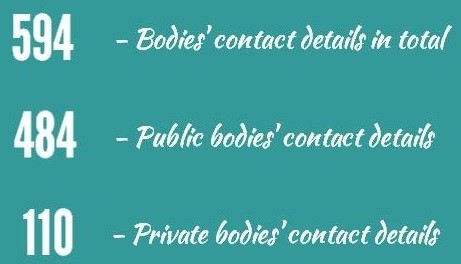
The most exciting thing about the Requestee page is that it provides, for the first time in South Africa, one place where a person seeking access to information can obtain contact details for the officials - at any one 594 public and private bodies - responsible for processing formal access to information requests (PAIA requests).
Links to PAIA manuals
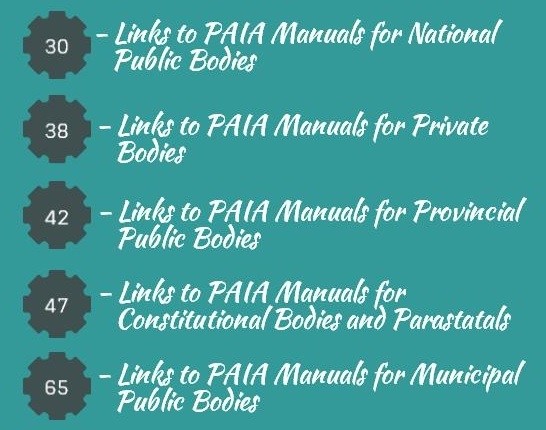
These contact details are featured alongside links to the PAIA manuals of those bodies that have them. Having a PAIA manual is in fact a legal requirement for all public and many private bodies and they important because they make it much simpler for someone to make a PAIA request. This is because they describe the kinds of information that that body holds and the kinds of records the information can be found in.
Compliance statistics
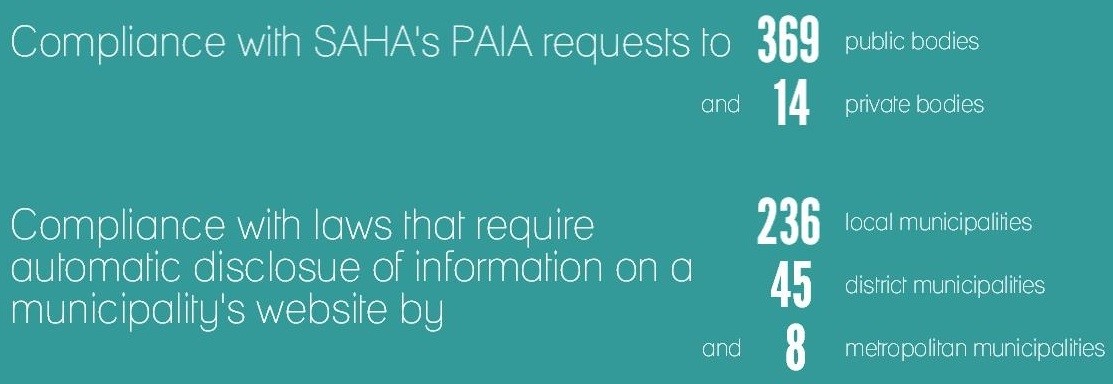
In addition SAHA has shared its experiences in submitting PAIA requests to these public and private bodies by providing statistics about compliance with SAHA's PAIA requests to each of those bodies.
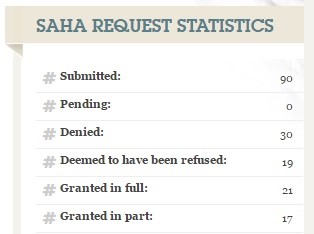 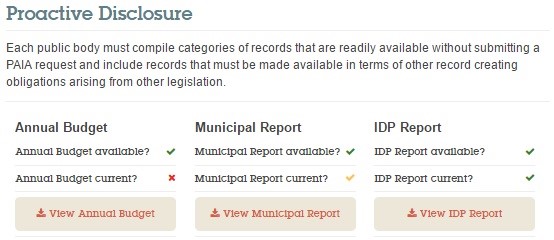
The statistics show how many requests SAHA has submitted to a relevant body, how many of those requests were refused, how many were granted in full and how many in part. In addition, when it comes to local government: it shows whether a municipality is ensuring that there is automatic (without the need for a PAIA request) access to its annual budget, annual report, and integrated development plan report. These statistics enable the public to gauge how transparent a body is, and might give an individual an idea of how the body is likely to react to their own PAIA request. Although compliance with PAIA reported on by the South African Human Rights Commission in their annual report to Parliament on the state of access to information in South Africa and by the Access to Information Network in their annual Shadow Report, compliance summaries of this nature and detail can only be found on the Requestee page.
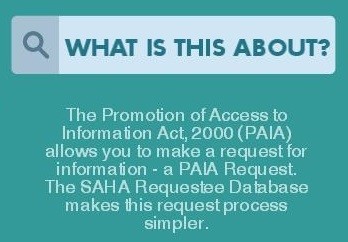
What is next
The many visits to the Requestee is indicative of a growing awareness about transparency and access to information in our societies. The enthusiasm that SAHA has witnessed from the public is encouraging and SAHA has already begun researching ways in which the Tracker and Requestee page can be further improved on.
Access the SAHA PAIA Tracker here
Access the Requestee page here
Download an inforgraphic outlining the impact of the Requestee page here |










